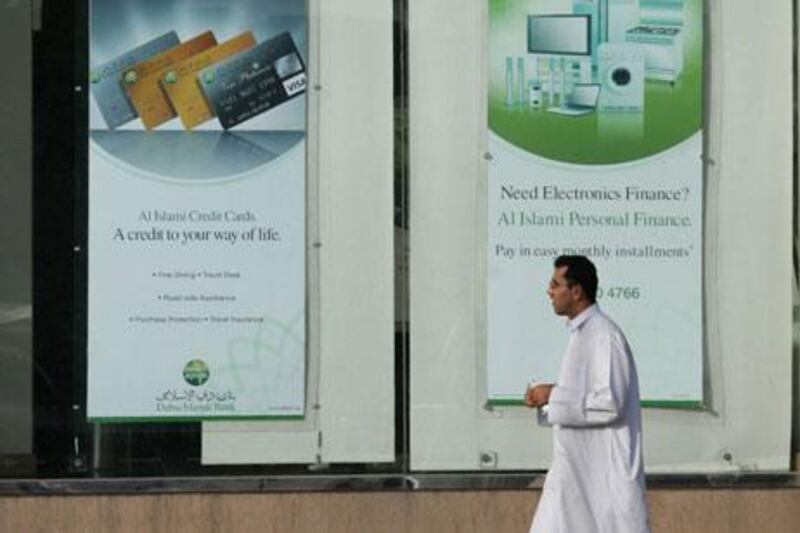Dubai officials yesterday unveiled its Ruler’s vision for the emirate to become the “global capital” of the Islamic economy, as it looks to boost exposure to an industry valued at trillions of dollars and further diversify its economic base.
The wide-ranging initiative will include a Sharia council to oversee standards in Islamic finance, an arbitration centre to resolve disputes in Islamic contracts, and a drive to boost production of halal food within Dubai.
Sheikh Mohammed bin Rashid, Vice President of the UAE and Ruler of Dubai, was behind the plan and was present at yesterday's announcement among other high-ranking officials and business leaders.
Sami Al Qamzi, the Director General of the Department of Economic Development in Dubai, said the aim of the initiative was to create “a global capital of Islamic industry, economy and finance” in the emirate.
“The plans to create an Islamic economic centre will provide access to a global market for Islamic products valued at [more than US$2 trillion],” said Mr Al Qamzi.
The plans were announced to a gathering of some of the UAE’s top business leaders.
Sultan Ahmed bin Sulayem, the chairman of DP World, applauded the move.
“Dubai is pioneering; this is another example of how it does things before anyone else in the world,” he said.
Islamic industries are already growing at a rapid pace within the UAE.
Last year set records for Islamic bond sales in the Arabian Gulf, with $21.2bn (Dh77.87bn) raised by companies in the region, creating a boom for investment banks operating in the Dubai International Financial Centre.
The ratings agency Standard & Poor’s said it expected the Islamic finance industry to more than double globally to about $2.6tn by 2015.
The UAE has also sought to bolster its influence in the halal food industry, and was appointed late last year as chair of the Halal Food Technical committee to set standards for the industry worldwide.
Trade of halal food and products is expected to grow rapidly from $3.6bn in 2010 to $8.4bn in 2020, according to government estimates.
The move to set up an officially sanctioned Sharia supervisory council for financial instruments in the UAE is also significant, and in line with leading Islamic financial centres around the world such as Malaysia and Bahrain.
The emirate will also work to develop international standards of practice for Islamic commerce and industry and will establish a centre for Sharia-compliant quality standards similar to the International Organisation for Standardisation.
A lack of standardisation in Sharia finance and other industries had become a major issue, and Dubai’s move to create a hub for all Islamic industries may help address these concerns among consumers, said Neil Miller, the global head of Islamic finance at KPMG.
“We believe that while Islamic finance has garnered all the headlines for the past several decades, there is a growing desire for other products and services to be delivered to Muslim clients in a holistic Sharia-compliant manner,” he said.
"We have already seen evidence of this in the form of hotels that do not serve alcohol and provide facilities for Muslim families.
"We have also started to see industry commentators suggest that business providing halal food should ensure that their entire supply chain is supported and financed in an Islamically acceptable manner."
Creating a “credible” form of Sharia certification trusted across the entire Muslim community has been widely sought after, and would help give confidence to consumers of Islamic products and services, he added.
“Sheikh Mohammed’s announcement would appear to be encouraging companies in the UAE and Dubai to start thinking about that,” said Mr Miller.





